Table of Contents
ToggleWhat is Greasy Hair - Understanding Greasy Hair:
Do you ever wake up in the morning, only to find your hair looking like it hasn’t been washed in days? Don’t worry; you’re not alone! Greasy hair is a common struggle for many of us, but the good news is, there are simple solutions to help you achieve that fresh, clean look you crave.
First things first, let’s talk about why our hair gets greasy in the first place. Our scalp produces natural oils called sebum, which help to keep our hair healthy and hydrated.
However, when we produce too much sebum, or if it isn’t distributed evenly throughout our hair, it can leave our locks looking oily and weighed down
Cause of Greasy Hair:
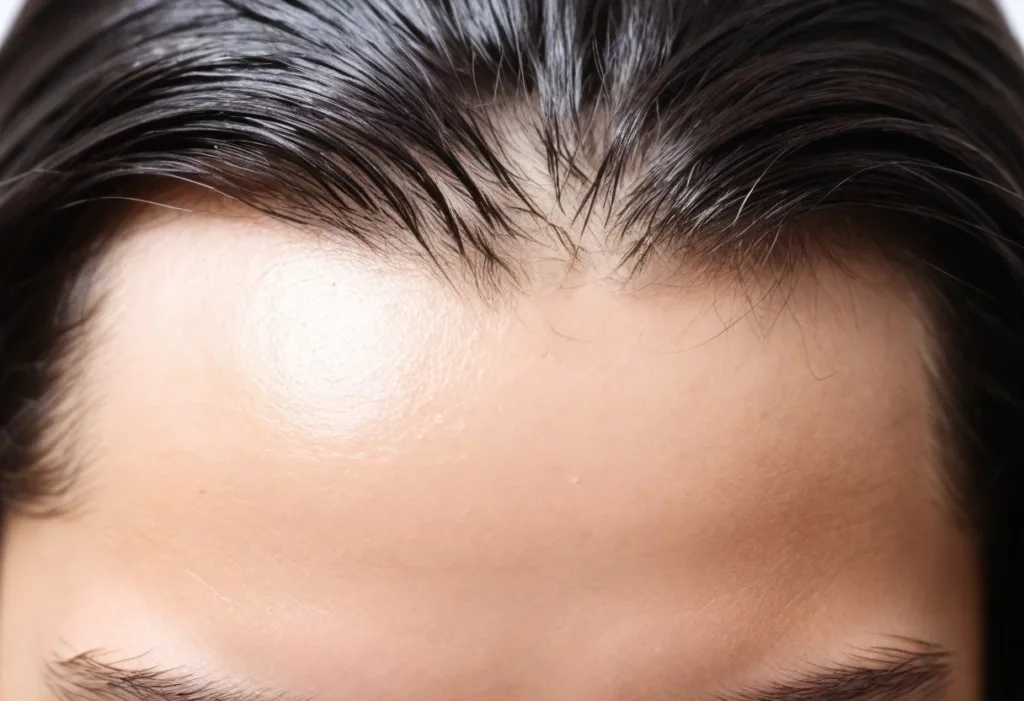
Greasy hair is primarily caused by the overproduction of sebum, a natural oil produced by the sebaceous glands in the scalp. Several factors can contribute to this overproduction of sebum:
Hormonal Changes:
When our hormones go on a rollercoaster ride, like during puberty, periods, pregnancy, or menopause, they can mess with how much oil our skin makes. More androgens, like DHT, can kick our oil glands into overdrive, making our hair super oily.
Genetics:
Genetics play a significant role in determining your hair type and oiliness. If you have a family history of oily hair or have inherited certain genetic traits, you may be more prone to greasy hair.
Stress:
When we’re stressed out, our body releases hormones like cortisol, which can make our oil glands go into overdrive and produce more oil. If you’re stressed all the time, it can make your hair even greasier as time goes on.
Diet:
Consuming a diet high in greasy or fried foods, as well as refined carbohydrates and sugars, can contribute to oily scalp and hair. Certain dietary factors can influence hormone levels and sebum production, leading to increased oiliness.
Over washing:
It might seem strange, but washing your hair too much can actually make it even oilier. That’s because it can take away the natural oils from your scalp, so it tries to make even more to make up for it. Washing too often can mess up the balance of your scalp and make your hair even greasier.
Incorrect Hair Care Products:
Using hair care products that are too heavy or contain harsh ingredients can contribute to greasy hair. Heavy conditioners or styling products can weigh down the hair and make it appear greasier.
Environmental Factors:
Environmental factors such as humidity, pollution, and exposure to harsh chemicals can also affect sebum production and contribute to greasy hair.
Tips to Keep Your Hair Fresh and Grease-Free:
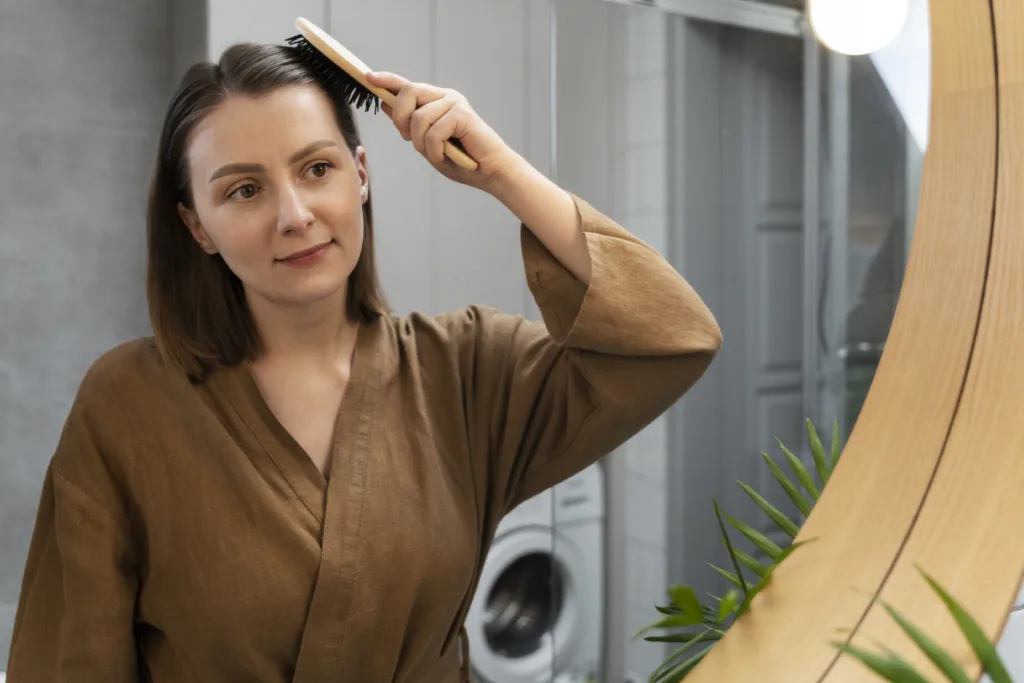
So, what can we do to combat greasy hair and reclaim our mane’s natural beauty? Here are some tried-and-true tips to help you banish the grease and embrace luscious locks:
Wash with Care:
While it may be tempting to wash your hair every day to get rid of excess oil, over-washing can actually strip your scalp of its natural oils, causing it to produce even more sebum. Instead, try to wash your hair every other day or every few days using a gentle, sulfate-free shampoo.
Choose the Right Products:
Choose hair products made just for oily hair. When you shop, check for shampoos and conditioners that say “clarifying” or “oil-balancing” on the bottle. These can help control how much oil your scalp makes without making it dry.
Mind Your Scalp:
When shampooing, focus on massaging the product into your scalp rather than lathering up the ends of your hair. This will help to remove excess oil and product buildup from the roots, leaving your hair feeling clean and refreshed.
Rinse Thoroughly:
After washing and conditioning your hair, be sure to rinse it really well. This helps get rid of any leftover product that could weigh down your hair and make it look greasy. Keep rinsing until the water looks clean.
Go Easy on Styling Products:
Dry Shampoo to the Rescue:
On days when you don’t have time to wash your hair, dry shampoo can be a lifesaver. Simply spray or sprinkle it onto your roots, then massage it in to absorb excess oil and refresh your hair between washes.
Watch Your Diet:
Believe it or not, your diet can also affect the health of your hair. Foods high in sugar and unhealthy fats can contribute to excess oil production, so try to incorporate more fruits, vegetables, and lean proteins into your meals for a healthier scalp and mane.
By trying out these easy tips and changing up how you take care of your hair, you can wave goodbye to greasy hair troubles and welcome a fresh, healthy head of hair.
Embracing Nature's Solutions:
In addition, we also offer natural remedies that can help eliminate greasy hair naturally.
Thankfully, Mother Nature offers us loads of stuff that can control oil, clean our scalps, and bring back harmony to oily hair. Whether it’s stuff from your kitchen or herbs from your garden, there are natural fixes that can make your hair less greasy and healthier.
Apple Cider Vinegar Rinse:
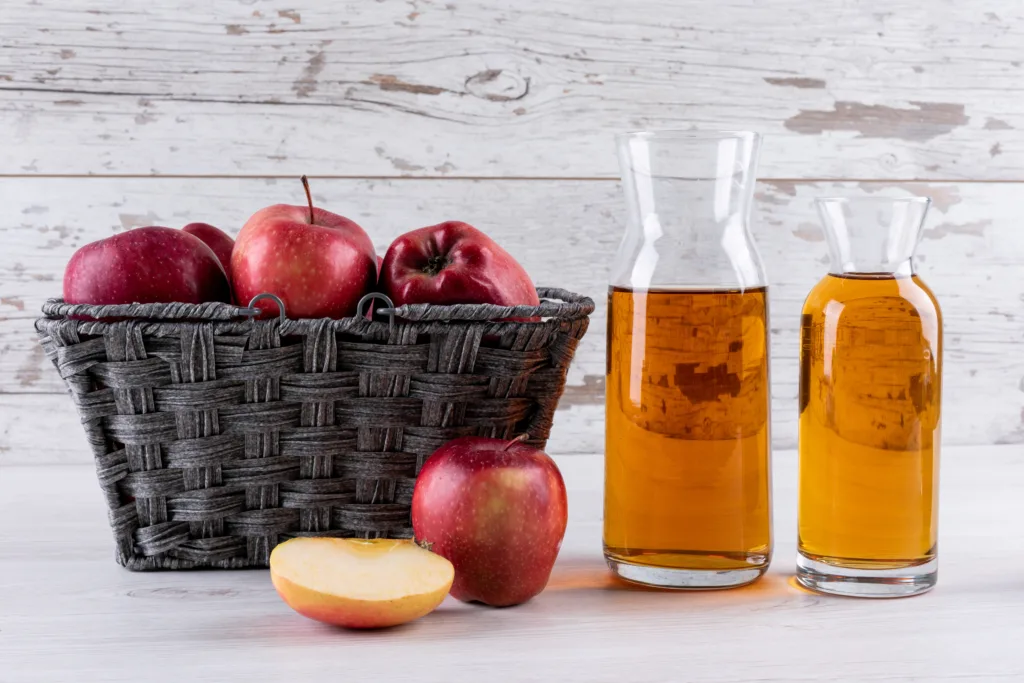
- Apple cider vinegar is a potent natural remedy for greasy hair, thanks to its acidic properties that help balance the pH of the scalp.
- To use, dilute apple cider vinegar with water in a 1:1 ratio and pour it over your scalp after shampooing. Massage gently and rinse thoroughly.
Aloe Vera Gel Treatment:
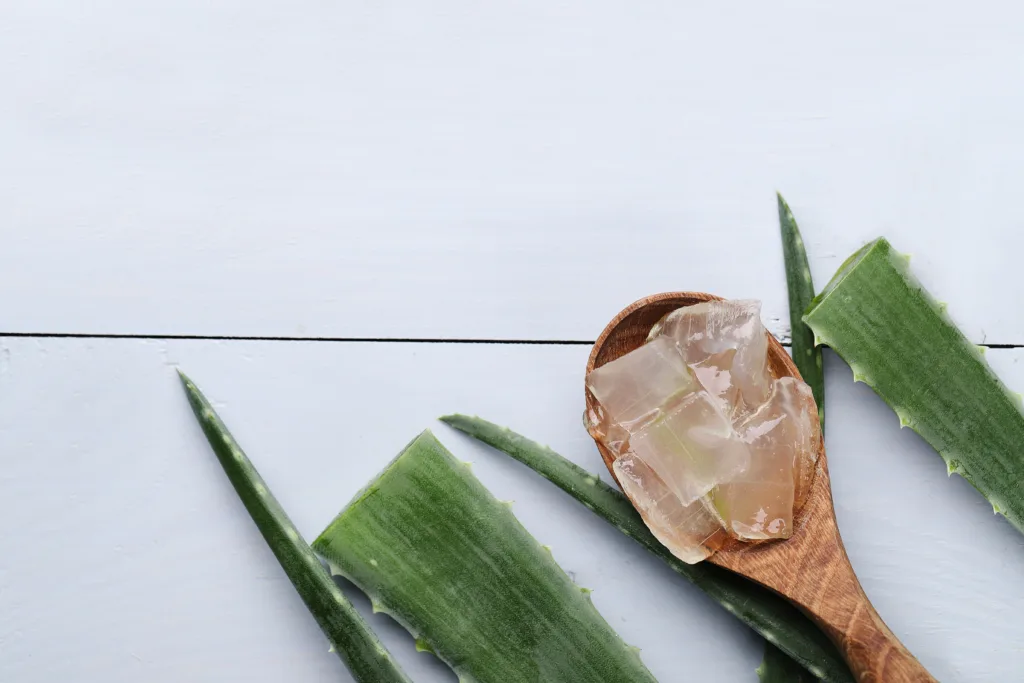
- Aloe vera is renowned for its soothing and moisturizing properties, making it an excellent choice for oily scalps.
- Apply fresh aloe vera gel directly to your scalp and hair, leave it on for 15-20 minutes, then rinse with lukewarm water.
Clay Hair Mask:
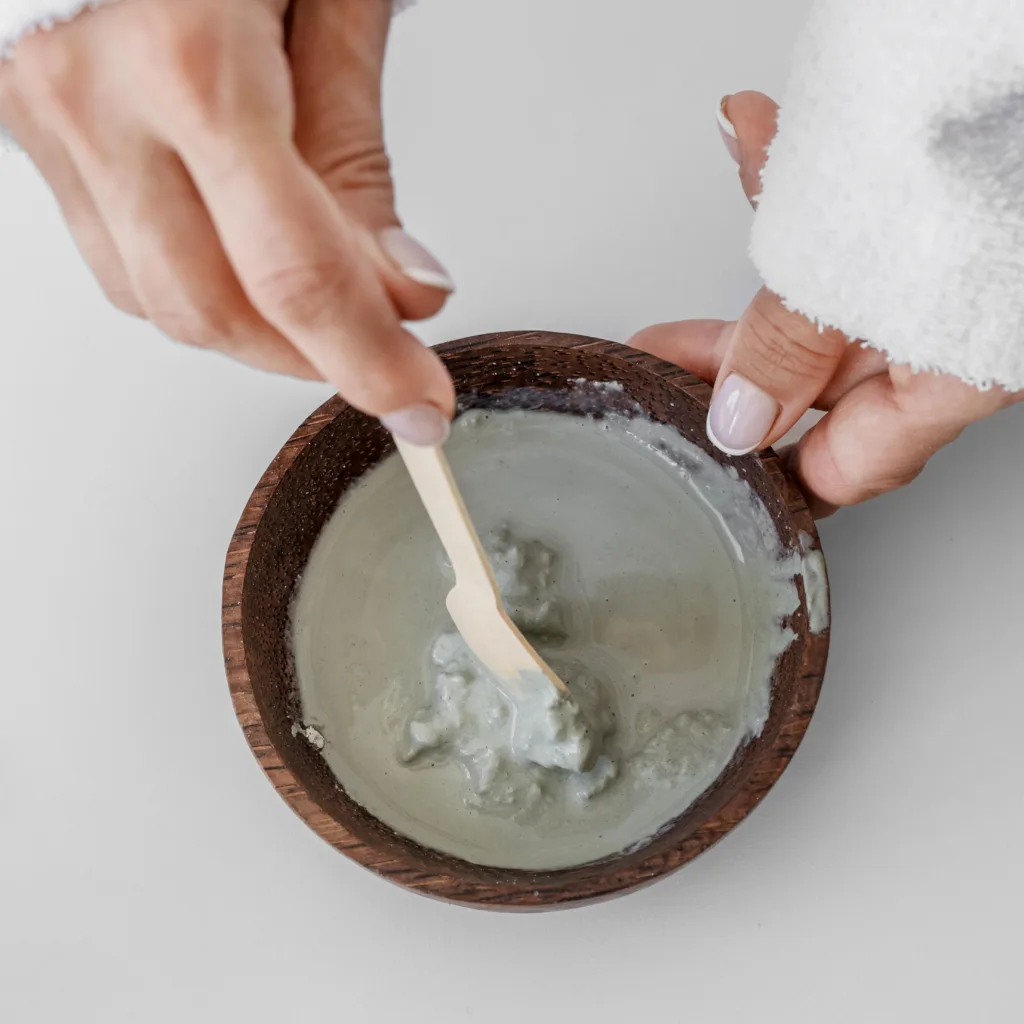
- Clay masks, such as bentonite or kaolin clay, are excellent at absorbing excess oil and impurities from the scalp.
- Mix clay with water to form a thick paste, apply it to your scalp and hair, leave it on for 15-20 minutes, then rinse thoroughly.
Herbal Rinse:
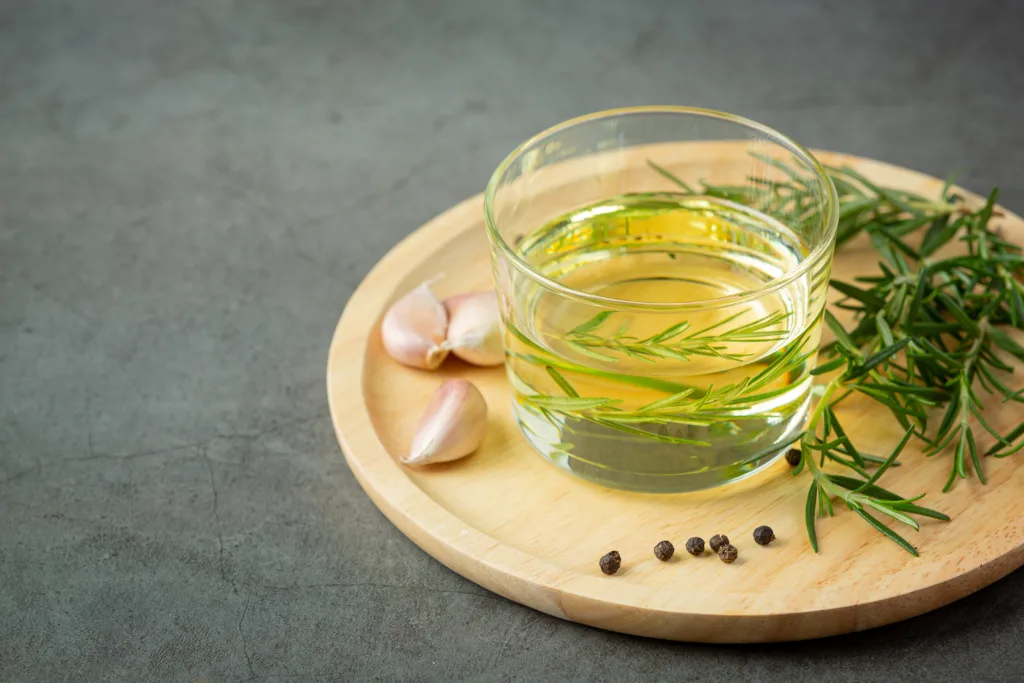
- Herbal infusions made from herbs like rosemary, sage, or peppermint can help regulate oil production and promote healthy scalp circulation.
- Brew a strong infusion, allow it to cool, then use it as a final rinse after shampooing and conditioning.
Additional Sources:
Frequently Asked Questions:
Q. How often should I wash my greasy hair?
A. It’s best to wash your hair every other day or every few days to avoid stripping your scalp of its natural oils. Washing too frequently can actually stimulate more oil production, making the problem worse.
Q. Can I skip conditioner if I have greasy hair?
A. While it’s tempting to skip conditioner to avoid adding extra moisture to your hair, using a lightweight, oil-free conditioner can actually help to balance out oil production and keep your hair hydrated without weighing it down.
Q. Is it okay to brush greasy hair?
A. Brushing your hair can help to distribute natural oils evenly throughout your strands, which can actually help to reduce the appearance of greasiness.
Just be sure to use a clean brush and avoid brushing your hair too vigorously, as this can stimulate oil production.
Q. Should I avoid heat styling tools if I have greasy hair?
A. Heat styling tools like flat irons and curling wands can exacerbate greasy hair by causing your scalp to produce more oil. If possible, try to limit your use of heat styling tools and opt for air-drying your hair instead.
Summary:
By following these simple tips and making a few adjustments to your hair care routine, and incorporating natural remedy you can say goodbye to greasy hair woes and hello to a clean, healthy mane.
So go ahead, flaunt your fabulous locks with confidence and embrace the beauty of naturally beautiful hair
